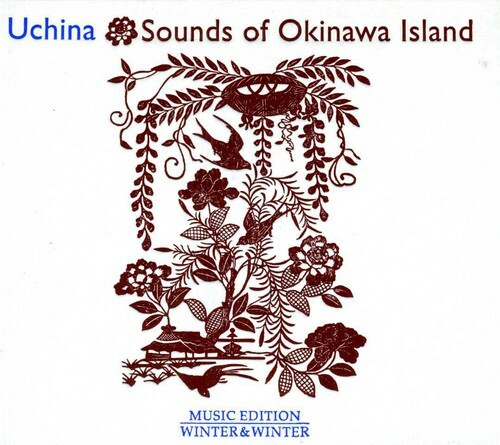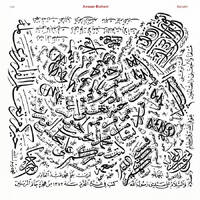2013 release
The Wire: "The latest in a series of field recordings on Winter & Winter that explore and celebrate island cultures, this is a collection of Okinawan court music dating from between the 15th and 19th centuries. Heavily structured around the downbeat, the performances favour deep drums with little reverb, as well as the dry, dellicate tone of the sanshin … Representative of this combination is the exquisite "Kunjansabakui", a workers' song from the 14th century, performed by a female quartet, where their plaintive call and response is punctuated by a crisply enunciated chorus that emphasises the labourers' efforts in hauling wood." September 2013
Islands develop a sound of their own. Not only the unique rhythms, songs and compositions are unmistakable but also the sound of the woods, of the waves, of the wind and the noises in market halls and in the villages are as unusual as the mentality of the islanders. Islands are self-contained "small worlds" with their own rules and own character. Okinawa is such a distinguishable island in Japan. The audible travel journal »Uchina« (»Okinawa«) will put you in touch with an enchanted power of a sound, full of magic and traditional culture, maybe unfamiliar for Western people, but worth a voyage of discovery into a wondrous sound world with high sensitivity.
Years ago Mariko Takahashi and Stefan Winter start a series of musical travelogues and some of the most exciting and beautiful records were composed with authentic sounds which only can be found where the tradition still exists in this age of globalisation. Here, we must distinguish between two phenomenons of keeping the traditional sounds. On the one side you can find organizations who are interested in keeping the heritage of ancestors with grim determination. Very often these groups do not allow any development and the tradition stands still. On the other side the tradition is alive if the tradition is in motion. One generation passes on in a natural way to the next generation their musical heritage. In our times this latter development seems to be oppressed by the international standardization. It is particularly fascinating to watch if the cultural characteristics will be washed out or revive.
The album »Uchina« penetrates the enchanting world of sounds of this special island to open a treasure chest. On Okinawa the tradition is alive, the art of singing, playing taiko and sanshin lives on in often new and unusual ways, but still follows tradition. The listener can experience classical music that has been performed at the court of the Ryukyu Kingdom, which ruled most of the Ryukyu Islands from the 15th century to the 19th century. The Kings of Ryukyu unified Okinawa Island. Only towards the end of the 19th century Okinawa became a part of Japan. Okinawan culture is quite different from that of other prefectures in Japan. For example, Okinawa is known for its Ryukyu music, Eisa-dance, and many other traditions like Shimadaiko. Taiko (drums), the sanshin (a three-string-instrument similar to a banjo) and vocals are the main sound elements of Okinawa’s music. Since over fifty years it was for the first time possible to record Awase-Chondara which is a very special performance art. It was also very important for this project to capture the sounds of the wind and waves beating the rocks. Hundreds of young girls jumped over a cliff in the south of Okinawa and killed themselves at the end of the battle of Okinawa in 1945. The Sound of Okinawa speaks to the world outside the island and has something to tell, if only we are ready to listen.
A drum piece called »Nami« is the opening track. The taiko performed by Keiko Higa & Shimadaiko (a group of women) transfers human emotion into the wave's rhythm and the energy of the ocean. 7777 The singer and sanshin player Bokusho Kinjo – one of the most influential Okinawan artists born in 1901 – plays the traditional song »Hwishi-Bushi«. When the tide rises, the birds feel bitter because they are loosing ground. And the man feels really bitter when the early bird starts singing because his love must leave.
more here: https://www.winterandwinter.com/index.php?id=1893
(025091019229)
| SKU | 025091019229 |
| Barcode # | 025091019229 |
| Brand | Winter&Winter |
Be The First To Review This Product!
Help other Birdland Records users shop smarter by writing reviews for products you have purchased.










